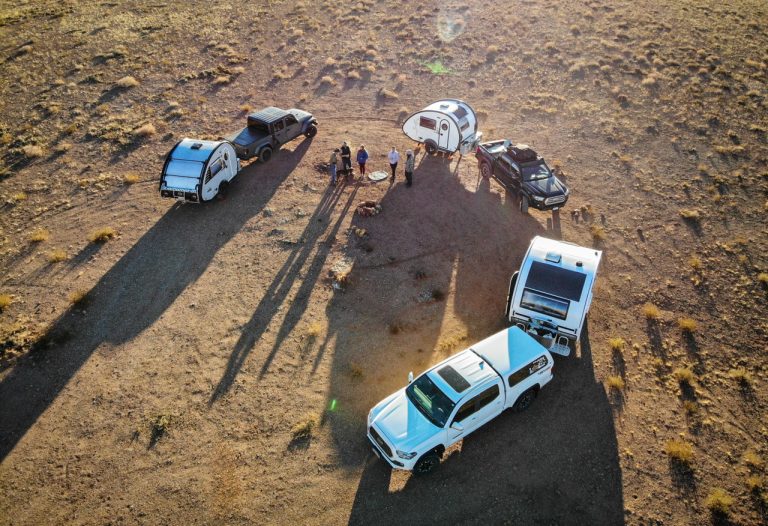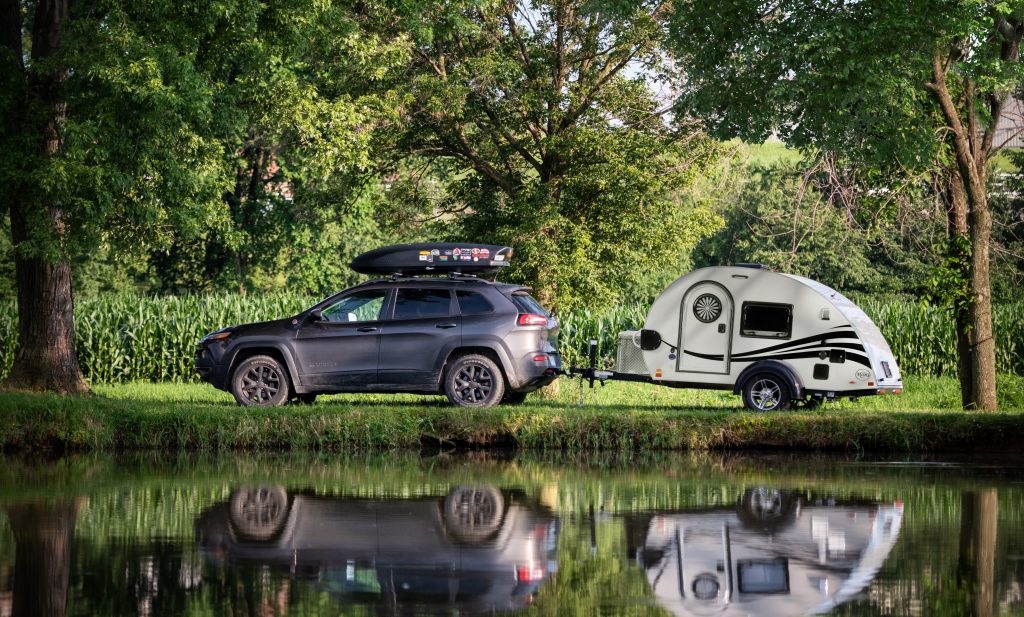You probably know that, unlike motorized RVs (Class A or B), towables and truck campers don’t need vehicle insurance to be on the highway. But does that mean you don’t need any insurance at all to cover your home-on-wheels?
We’ve put together a quick Q&A guide covering the common questions that owners of towables and truck campers ask about insurance. Read through them, then sit down with your insurance provider and review your specific needs and insurance requirements before you take your camper out on the road. That way you can avoid any unpleasant surprises!
Planning to cross the border into Mexico or Canada with your camper or towable? Ask your insurance agent if there is anything you need to know before you go!
Q: If I have a truck camper or a towable—not a motorhome—do I still need to insure it?
Maybe. If you financed your purchase (i.e. you don’t own it outright), the financial lien-holder will most likely require that you carry full coverage including collision on your camper, according to Progressive Casualty Insurance Company. But keep reading for other circumstances that may indicate a possible need for insurance.
Q: I own my truck camper or towable outright—no loan. (Yay!) So my tow vehicle’s liability insurance will take care of liability insurance needs for my camper, right?
Strictly speaking, the answer is yes. But don’t put away your checkbook yet. According to Allstate, a tow vehicle’s liability insurance comes into play in two situations: If someone is injured as a result of an auto accident you caused or if you damage another person’s property with your vehicle. Liability insurance won’t cover other costly unpleasant and unplanned situations, such as theft, vandalism, acts of nature (think hailstorms), or other types of damages. That’s why you might want to check out an RV insurance policy.
Q: I’ve outfitted my camper’s interior with a lot of “toys”: high-end entertainment center and the best kitchen appliances that fit in a small space. How can I protect them against loss?
While a custom equipment policy is generally included in a standard RV policy, you want to review the coverage limit to make sure it is sufficient and, if needed, increase the amount. As for your personal items, while your homeowner’s policy may offer you some coverage, it’s best to discuss this with your agent to make sure it’s adequate or if you need additional coverage with a Personal Articles Policy or a rider. (Note: Also ask if there are specific geographical limitations on the coverage.)
And don’t forget those items outside your camper, like an ATV, golf cart, or kayak. You want to make sure they are covered, too!
Q: When I’m traveling in my camper, I’m still running my business. My business property insurance will cover any equipment losses, right?
Most likely your insurance agent will have you take out an inland marine insurance policy to cover business property that is movable—think laptop or video equipment. Discuss the equipment you’ll be keeping in your mobile “home office” and if your current business policy provides coverage for those items as well.
Q: I’ve sold my sticks-and-bricks home and will be living in my towable or truck camper year-round. Does that change my insurance needs?
According to Progressive, the coverages for full-timer’s insurance are similar to a recreational policy, but you also have the option of adding additional coverages like personal liability and loss assessment. But even if you still have a fixed home that you return to during the year, your insurance company will base the type of use—full or part-time—for insurance purposes on the number of days your rig is on the road, with 150 days the generally accepted cut-off, according to FCIS Insurance.
Q: Are there other types of insurance coverage that I should consider?
Roadside Assistance coverage provides towing service to the nearest qualified repair shop and will pay for labor. (Check your auto policy first.)
Comprehensive coverage is for damages not covered in a collision, including fire, vandalism, theft, any broken glass, and weather.
Storage coverage allows you to suspend your coverage when your RV is parked yet still protects against threats like fire, storms, wind, and theft.
Other coverages are listed on the following insurance company websites: Progressive, National General Insurance, and Nationwide’s RV insurance.
Q: Any tips on saving money when I’m buying an insurance policy for my truck camper or towable?
According to Allstate, there are some situations that may qualify you for a discount such as:
- Taking a course from an RV-industry association and receiving a certificate
- Bundling your policy with other insurance coverages such as your homeowners policy
- Raising your deductible to reduce your premium
- Reducing your coverage limit on your camper or towable as it declines in value due to age
- Remember, discuss your insurance needs and travel plans with your insurance agent to make sure you have the coverage you need—just in case!
Recent Articles





